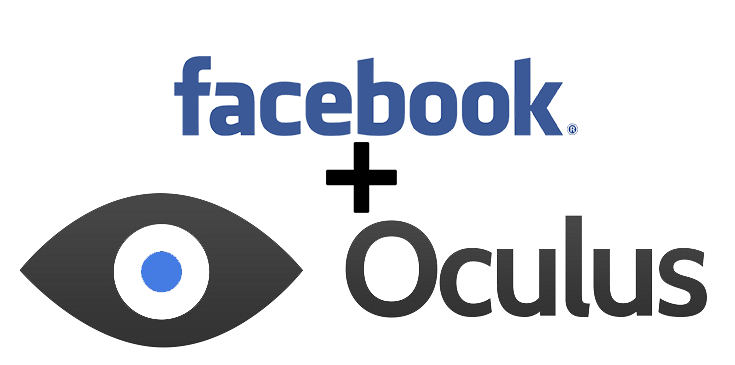
On Tuesday, March 25, Facebook announced that it will be acquiring the virtual reality technology company Oculus VR for $2 billion. Oculus VR’s much anticipated development is the virtual reality gaming headset, Oculus Rift, which allows the gamer to feel completely immersed in the game itself. Oculus Rift was initially funded via Kickstarter, receiving over 2 million in donations from the original goal of $250,000. Although VR technology is not a new technology in and of itself, the current developments are highly priced and generally unattainable- used primarily by the military and scientific community. Oculus Rift’s promise to be the first “truly immersive virtual reality headset for video games” at an affordable price for the general public is a huge and exciting deal for the gaming community and future realms VR may be incorporated into. Facebook’s announcement to acquire Oculus VR, however, has sparked both outrage and excitement in speculation about the future of Oculus.
Many of the backers of the original Oculus Rift Kickstarter have voiced their disapproval to Oculus VR calling them sellouts and even demanding refunds of their Kickstarter donations, emphasizing that they didn’t sign up to back the social-media-giant that is Facebook. While Oculus delivered on its promise of perks and dev kits to backers, the Kickstarter community remains upset because the start-u[p project they supported has turned to corporate money and resources. Many opponents of the sale to Facebook are weary that the future of Oculus Rift will shrivel and die as many small companies that get enveloped by larger ones do (think Flikr’s fall after it was bought by Yahoo) or that the focus of VR technology will stray from its focus in gaming into other VR realms. Such agitated and dampened opinions are being voiced everywhere from genuine discussion posts to cynical memes and comments across the internet. A top comment on Oculus VR’s own blog post laments “This is an epic betrayal.” Numerous contributors to the discussion thread also emphasize their disappointment in Oculus’ settling to be run by a company that might not have its best interests as a gaming company at heart.
Reassuring disheartened Oculus fans is Oculus founder Palmer Luckey who spent many hours after the acquisition announcement responding to dubious supporters via Reddit. One major hesitancy that is being strongly voiced is Facebook’s direct involvement in the Oculus Rift experience. Luckey has been responding in accordance with the press announcements - that joining forces will make production faster, better, cheaper, that Oculus will still operate independently with a primary focus on gaming and a wide future for VR, etc. - but he is also consoling and reassuring in his statements that emphasize the future of virtual reality as a platform and promising that “You will not need a Facebook account to use or develop for the Rift.”
As for Facebook’s stance, Mark Zuckerberg, who posted the acquisition announcement yesterday afternoon, claims that Oculus’ plans for gaming development with the Oculus Rift “won’t be changing” and that “Oculus will continue operating independently within Facebook to achieve this.” The post goes on to point out other areas in which Zuckerberg hopes to “make Oculus a platform for many other experiences” including sporting events, classroom and medical interactions, as well as adventures and hangout time with friends, the ultimate goal being to make “this kind of immersive, augmented reality…a part of daily life.” For those optimistic about Facebook’s newest acquisition, the reality of a sci-fi inspired virtual world seems closer than ever. And while there is undoubtedly skepticism in the air, there is also a voice of excitement sweeping the internet with inspired proposals for VR apps and indications of how the technology might be used in the future. Oculus’ new relationship with Facebook will afford it more resources and expansive opportunities that it may not have had independently. If Oculus really does continue to work independently then Facebook’s perks may be all the more helpful. Only time will tell as we sit in agonizing anticipation of how the future of VR will unfold itself to the world.
Read More…
Post Comment











